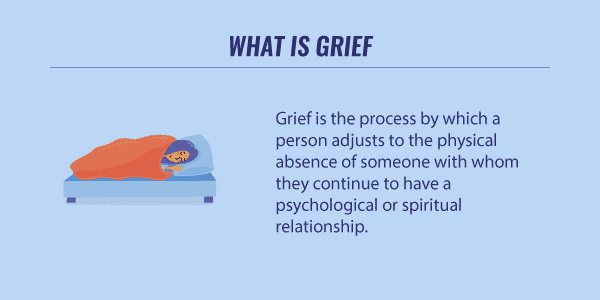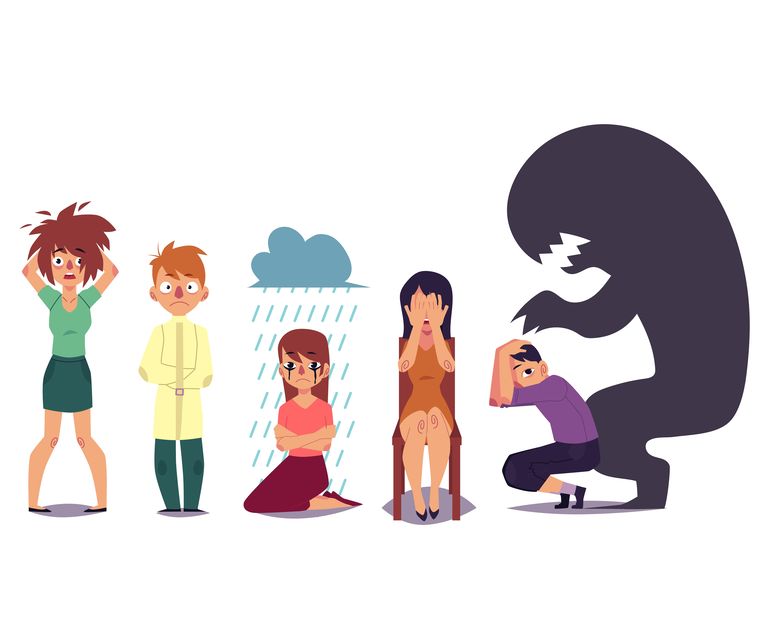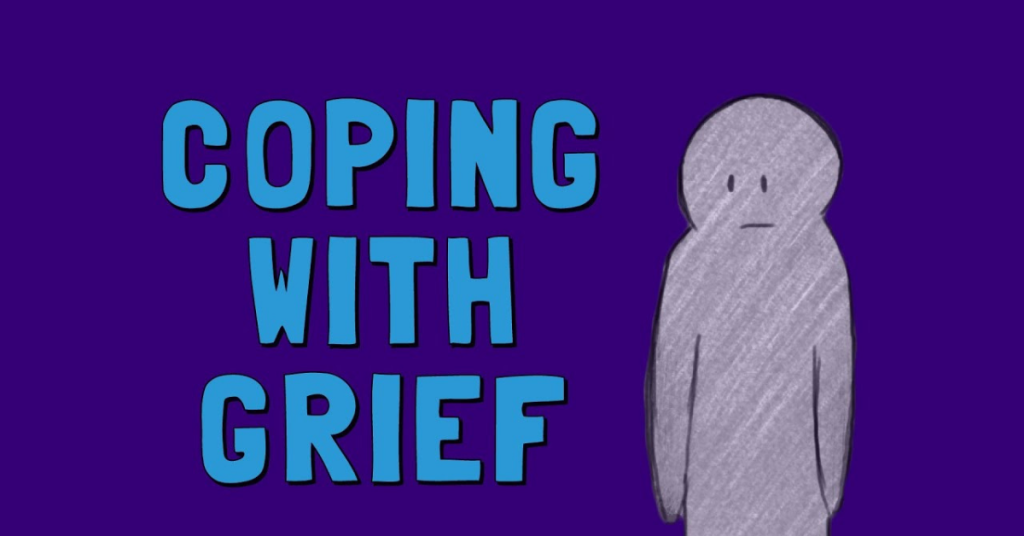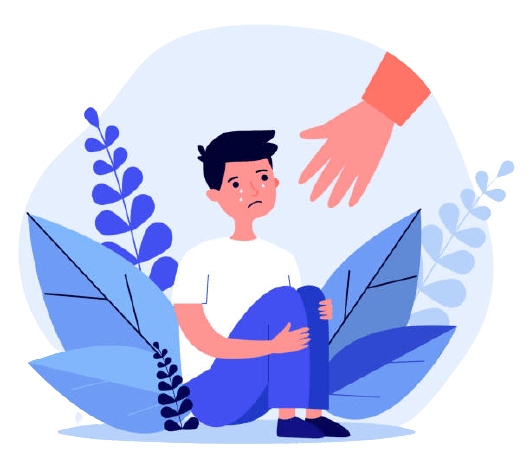Grief is a natural response to loss, and it can be extremely difficult to cope with. Many people don’t know how to deal with grief, which can lead to feelings of isolation and loneliness. If you are grieving the death of a loved one, it is important to get support from your friends and family. In addition, there are many other steps that you can take to help cope with your grief. In this blog post, we will discuss 11 steps for coping and healing after a loss.
Contents
What Is Grief?

Grief is a natural feeling that many people experience after they lose something important to them. Some people feel sad, empty, and lonely. Grief is normal and it will go away in time. Grief can be very intense and it can last for a long time.
There are many common symptoms of grief. Some people experience all of these symptoms, while others only experience a few.
Symptoms can include:
- Feeling sad, empty, or lonely
- Crying more often than usual
- Having trouble sleeping or eating
- Feeling angry, irritable, or frustrated
- Feeling overwhelmed or like you can’t cope
- Experiencing physical symptoms such as headache, stomachache, nausea, and fatigue
Reasons Of Grief

There are many reasons why people might experience grief. Some of the most common reasons include:
- Death of a loved one: This is the most common reason for grief. A person might feel like they are losing a part of themselves and they may struggle to cope with life without their loved one.
- Divorce or separation: This can be a very difficult time for people. They may feel like they have lost their support system and they may struggle to cope with life without their partner.
- Losing a job: This can be a very difficult time for people. They may feel like they have failed and they may struggle to cope with the stress of looking for a new job.
- Losing a pet: This can be a very difficult time for people. They may feel like they have lost their best friend and they may struggle to cope with life without their pet.
- Ending a significant relationship: This can be a very difficult time for people. They may feel like they have lost their best friend and they may struggle to cope with life without them.
- Hearing bad news: This can be a very difficult time for people. They may feel like they are losing control and they may struggle to cope with the news.
- Aging and losing friends and family members: This can be a difficult time for people. They may feel like they are losing the support of their friends and family members. This can be tough for them to cope with.
11 Easy Steps to Cope with Grief

There are many ways that you can cope with grief. The following steps may help:
- Step One: Allow yourself to feel your feelings. Don’t try to bottle them up or ignore them. It’s okay to cry and be sad. You need time to grieve the loss.
- Step Two: Talk to someone about how you’re feeling. It can be helpful to talk to a friend, family member, therapist, or support group. Expressing your feelings will help them to become less overwhelming.
- Step Three: Don’t isolate yourself. Reach out to people and participate in activities that you enjoy. Surrounding yourself with positive people and things can help improve your mood.
- Step Four: Allow yourself time to mourn. Grief is a process that takes time. Don’t expect it to go away overnight. Be patient and gentle with yourself.
- Step Five: Take care of yourself physically. Get enough sleep, eat healthy foods, and exercise regularly. These things can help improve your mood and overall well-being.
- Step Six: Don’t try to deal with everything on your own. Also, accept help from others when they offer it. Letting other people do things for you can be a way to take some of the burdens off of yourself.
- Step Seven: Grieve in your own way. There is no right or wrong way to grieve. What works for one person may not work for another. Find what helps you and stick with it.
- Step Eight: Remember the good times. When you’re feeling sad, it can be helpful to remember happy memories of the person who died. This can help to make the grieving process a little bit easier.
- Step Nine: Seek professional help if necessary. If you are struggling to cope with grief, you may want to speak with a therapist. They can help you work through your feelings and provide support.
- Step Ten: Honor the person who died. You can do this by celebrating their life, sharing memories, and doing things that they enjoyed.
- Step Eleven: Give yourself time. Grief is a process that takes time. Also, don’t expect it to go away overnight. Be patient and gentle with yourself.
Therapy Options To Deal With Grief

There are many therapy options available to help you cope with grief. Some people find that individual therapy is helpful. This involves meeting one-on-one with a therapist who can provide support and guidance. Group therapy may also be beneficial. In this type of therapy, you meet with a group of people who are also grieving the loss of a loved one. This can provide comfort and understanding. There are also online support groups available for those who prefer to communicate in this way. Further, if you feel like you need more help coping with grief, seek professional help from a therapist or counselor. Also, they can provide additional support and guidance as you work through your feelings. Grief is a process that takes time. Don’t expect it to go away overnight.
- Individual Therapy: Individual therapy involves meeting one-on-one with a therapist who can provide support and guidance.
- Group Therapy: Group therapy involves meeting with a group of people who are also grieving the loss of a loved one. This can provide comfort and understanding.
- Online Support Groups: There are also online support groups available for those who prefer to communicate in this way.
- Professional Help: If you feel like you need more help coping with grief, seek professional help from a therapist or counselor. Also, they can provide additional support and guidance as you work through your feelings.
Medication Options To Deal With Grief

There are also medication options available to help you cope with grief. Some people find that antidepressant medications can be helpful. These medications can help to improve your mood and make it easier to cope with the grieving process. Also, if you are struggling to eat or sleep, your doctor may recommend medication to help you get back on track. It is important to speak with your doctor before starting any new medications. They can help you choose the right medication and dosage for you. Antidepressants may not be right for everyone, so don’t hesitate to ask about other options.
- Antidepressants: Antidepressants can help to improve your mood and make it easier to cope with the grieving process.
- Antipsychotics: If you are struggling to eat or sleep, your doctor may recommend medication to help you get back on track.
- Beta-blockers: Beta-blockers may be helpful for those who are struggling to cope with physical symptoms of grief, such as chest pain or rapid heartbeat.
Finally, grief is a process that takes time. Don’t expect it to go away overnight. Also, be patient and gentle with yourself as you work through your feelings. However, there are many therapy options and medication options available to help you cope with grief. Seek out the support that works best for you and allow yourself time to heal.
Self Help Techniques To Deal With Grief

- Accept the pain and let yourself feel it. Don’t try to fight or suppress your feelings.
- Talk about your loss with trusted friends and family members. This can be cathartic and help you process your grief.
- Also, allow yourself to mourn in your own way, on your own timeline. There is no right or wrong way to grieve.
- Take care of yourself both physically and emotionally. Eat healthy foods, get enough sleep, and exercise regularly. Also, find time for activities that make you happy and provide a distraction from your thoughts about the loss.
- Also, find support groups or counseling services if you need more assistance processing your grief. Talking openly about the death with someone who understands what you are going
- Remember the good times. When you’re feeling overwhelmed by sadness and pain, focus on the happy memories you shared with your loved one.
- Celebrate their life. Memorialize your loved one in a way that feels meaningful to you. Also, share stories and photos, plant a tree in their memory, or make a donation to a charity they cared about.
- Allow yourself time to heal. Grieving is a long process, and it’s okay if you don’t feel better overnight. Also, be patient with yourself and know that the pain will lessen over time.
Therefore, grief can be incredibly overwhelming and isolating. But by following these steps, you can begin the healing process and find some peace amidst all of the pain.
Benefits of Dealing With Grief
- You will feel better in time. Grieving is a process that takes time. You won’t feel better overnight, but eventually, you will start to feel more like yourself again.
- It is cathartic to talk about your loss. Sharing your thoughts and feelings about the loss can be really helpful in terms of processing them.
- It is healthy to take care of yourself physically and emotionally. Eating healthy foods, getting enough sleep, and exercising regularly are all great ways to take care of yourself.
- You will feel connected to your loved one. Keeping the memories of your loved ones alive is a way to keep them close to your heart.
- You will feel like you are honoring their memory. Memorializing your loved ones in a way that feels meaningful to you is a great way to show your respect and love for them.
- You can find support from friends, family members, or professionals. Grief can be incredibly isolating, but it is important to know that you are not alone. Also, there are people who care about you and want to help.
- Remembering the good times can help you through the tough times. When you’re feeling overwhelmed by sadness and pain, focus on the happy memories you shared with your loved one.
- Celebrating your loved one’s life can be comforting. Sharing stories and photos, planting a tree in their memory, or making a donation to a charity they cared about can all be ways of celebrating their life.
- Allowing yourself time to heal is crucial. Grieving is a long process, and it’s okay if you don’t feel better overnight. Be patient with yourself and know that the pain will lessen over time.
Furthermore, grieving the death of a loved one is never easy. Consequently, it can be difficult to know where to start or what steps to take in order for healing. But by following these self-help tips, you can begin the process of coping and healing. Therefore, remember that it takes time and there is no right or wrong way to grieve. Grief is unique to each individual, so find what works best for you and allow yourself the time needed to heal.
Conclusion
Grief is a natural response to death. It’s important to find time for yourself, and accept help when you need it. But don’t forget that there are people who will support you during this difficult time in your life. You can also try other things like yoga or meditation which may be helpful tools for managing grief. If you are grieving, it can help to take care of yourself. Also, doing things that make you feel good will make the pain not as intense. If you do nothing, then the pain will be worse. If any of these tips feel too hard right now please know that being patient with oneself pays off in the long term. The most important thing is that you take care of yourself and allow yourself to heal in your own way and in time.
A Word From Therapy Mantra
Your mental health — Your psychological, emotional, and social well-being — has an impact on every aspect of your life. Positive mental health essentially allows you to effectively deal with life’s everyday challenges.
At TherapyMantra, we have a team of therapists who provide affordable online therapy to assist you with issues such as depression, anxiety, stress, workplace Issues, addiction, relationship, OCD, LGBTQ, and PTSD. You can book a free therapy or download our free Android or iOS app.


